Gerontology degrees are designed to equip students with essential skills and knowledge needed to provide care for older adults and conduct research on aging and adult development.
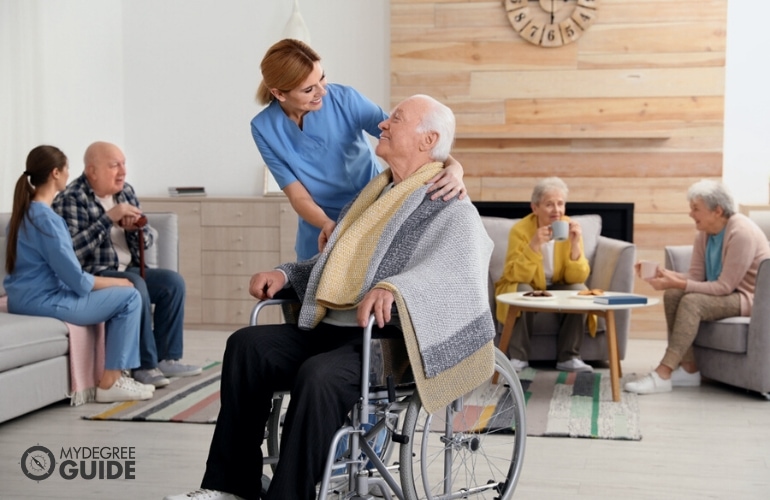
You might be interested in gerontology if you want to work in healthcare or education and help improve the welfare of older individuals.
Editorial Listing ShortCode:
A gerontology major explores a wide range of topics, including psychology, social issues that affect older adults, services offered, and responsibilities one may have working in the field of gerontology.
Online Bachelor’s in Gerontology Degrees

Gerontology is the mental, physical, and social study of aging. A bachelor’s degree in gerontology is a foundational program that introduces students to multiple perspectives in the field of aging.
Editorial Listing ShortCode:
A gerontology major includes multidisciplinary coursework that helps you gain different perspectives on the effects of aging, policies that affect older adults, and services offered to aging adults. Topics typically explored in a BA in Gerontology degree online include:
- The psychological effects on aging individuals
- The biological processes of aging
- Social issues surrounding the field of aging
- Healthcare and community services available to older adults
Professionals in the gerontology sector can be found in a wide range of work environments, such as government and private organizations, healthcare facilities, and education. Common roles for professionals with a bachelor’s degree in gerontology include:
- Social worker
- Nursing assistant or registered nurse
- Teacher or health education specialist
- Personal care or home health aide
- Policy advocate
A bachelor’s degree might be a strategic path for students who wish to further their education with a graduate degree. A masters could help expand your career options and further qualify you for management or leadership positions in gerontology. For instance, gerontologist is one of the jobs that may be available to students with a graduate degree.
Studying gerontology can help you develop a versatile skill set that may be beneficial to a wide range of careers and industries. Useful skills you might gain while studying gerontology include communication, decision-making, problem-solving, research, and patience.
If you’re passionate about helping others and want to improve the quality of life for older adults, a gerontology bachelor’s degree might interest you.
Gerontology Careers and Salaries
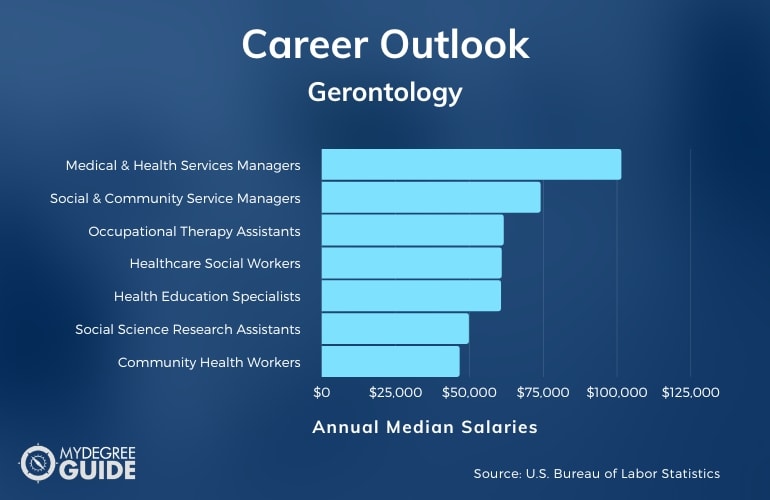
A bachelors degree in gerontology can prepare individuals for a number of careers in the healthcare industry. Professionals who work with older adults can be found in a wide variety of work environments.
Careers in gerontology can often be found in retirement communities, long-term care facilities, hospitals, nursing homes, and community service organizations. According to the Bureau of Labor Statistics, here are the median salaries of potential career paths associated with bachelor studies in gerontology.
| Careers | Annual Median Salaries |
| Medical and Health Services Managers | $101,340 |
| Social and Community Service Managers | $74,000 |
| Occupational Therapy Assistants and Aides | $61,520 |
| Healthcare Social Workers | $60,840 |
| Health Education Specialists | $60,600 |
| Social Science Research Assistants | $49,720 |
| Community Health Workers | $46,590 |
| Social and Human Service Assistants | $37,610 |
| Nursing Assistants | $30,310 |
| Home Health and Personal Care Aides | $29,430 |
A bachelors degree in gerontology may help individuals gain an entry-level to mid-level career. A masters degree or higher is usually desired for managerial or leadership positions, though experience can also help you qualify for management roles.
Editorial Listing ShortCode:
Individuals who wish to become a gerontologist may have an undergraduate degree in gerontology and pursue a masters in gerontology online or on-campus degree to meet their career goals. Job availability and salaries can depend on several factors, such as level of experience, level of education, and location. Some gerontology careers may require additional steps in training or education.
Gerontology Bachelor’s Curriculum & Courses

The main subjects explored in a gerontology bachelor program are psychology, sociology, biology, and public health in relation to aging. The following gerontology courses may be offered:
- Introduction to Gerontology: This foundational course introduces you to the study of aging and how it affects individuals.
- Psycho-Social Aspects of Aging: You’ll examine the psychosocial and psychopathological aspects of different stages of aging and adult development.
- Contemporary Issues in Aging: This course is designed to teach you about issues surrounding aging—such as ageism, abuse, politics, available aging services, and expanded life expectancy.
- Biology of Aging: You can learn about aging from a biological perspective, including topics on how the human body changes with aging and on diseases often associated with aging.
- Death, Grief, and Loss: This course explores the concepts of death and loss, along with symptoms of grief and strategies to cope with death and dying.
- Mental Health and Aging: This course focuses on how an individual’s mental health is affected by the aging process.
- Families in Later Life: You’ll learn about the functions and structures of families in later life, including the examination of various relationships between family members.
- Community Resources for Older Adults: You’re introduced to the different services offered to older adults to help with aging, such as community-based services, programs, and institutions available.
- Policies and Older Adults: This course is designed to introduce you to social policy, how it can affect older adult services, and organizations that influence the lives of older adults.
- Psychology of Adulthood and Aging: You’re introduced to the psychological development of adults and psychological effects that may appear as a result of aging.
Bachelors programs include general education coursework. Elective courses may be offered, which can be beneficial for students who want to specialize in a specific area of gerontology.
Admissions Requirements

Colleges and universities may have different admissions requirements for students to fulfill before applying. These are some common admissions requirements for bachelor degree programs:
- High school diploma or GED completion
- Letters of recommendation
- Personal statement
- SAT or ACT scores (only some schools require them)
Some schools ask for letters of recommendation from teachers or employers to get an idea of how you are as a student. Personal statements allow you to introduce yourself and outline what your goals are and why you should be admitted to the school you’re applying to.
Accreditation
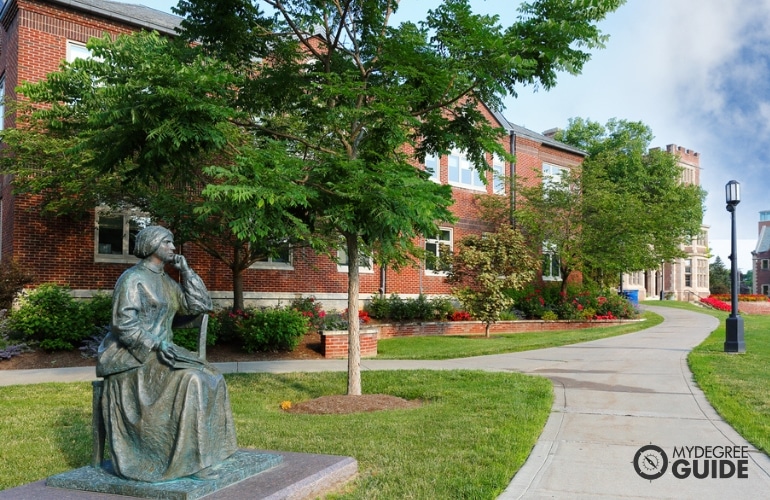
A regionally accredited college or university is recognized by a third-party regional accrediting organization. Schools aren’t required to receive accreditation, but it establishes credibility for the institution and your education.
When a school is accredited, it means it’s met certain quality educational standards set forth by an accrediting agency. The accreditation status of a school may affect certain opportunities, such as future employment and financial aid eligibility.
Editorial Listing ShortCode:
It can also affect future education opportunities, as many graduate-level programs only accept applicants who hold an undergraduate degree from an accredited school.
Financial Aid and Scholarships

Students can submit applications for financial aid and scholarships to potentially receive financial assistance for their education costs. Financial aid can be awarded to eligible individuals by the state or federal government.
The US Department of Education offers a Free Application for Federal Student Aid (FAFSA), which you can submit to determine if you’re eligible to receive government aid based on need. Scholarships may be income or non-income based. Some scholarships are available to most students, while others can be limited to specific groups or based on academic or athletic abilities.
You can apply to numerous scholarships to possibly increase your chances of receiving a monetary award. The amount of money you could potentially receive from a scholarship depends on the organization that offers the scholarship program.
What Is a Gerontology Bachelor’s Degree?

A gerontology bachelor’s degree is an undergraduate program designed to introduce students to the study of aging and the various effects aging has on older adults. It explores many different subjects in relation to aging, such as healthcare services, responsibilities of healthcare positions that work with older adults, and policies and issues surrounding aging.
Learning outcomes of this type of program may include understanding the social, psychological, and physical effects of aging as well as the overall impacts of aging on adult development. A bachelor’s degree in gerontology can help prepare you for a number of entry-level to mid-level careers in the field of aging.
Is Gerontology a Good Major?

Yes, gerontology is a good major for many undergraduate students. It’s considered a multidisciplinary degree because of the wide range of skills and disciplines you can learn.
It can also help you gain essential knowledge for gerontology healthcare that can be applied to a range of different jobs in the field. For instance, some graduates may pursue careers as nursing or home health aides, health education specialists, or geriatric social workers.
According to the Bureau of Labor Statistics, employment in the healthcare industry is expected to grow 13% over the next decade, which is much faster than average job growth.
What Can You Do with a Gerontology Degree?

Gerontology bachelor degree programs can help you develop essential skills and knowledge to serve in a variety of healthcare and community services roles.
Individuals who work in gerontology can be found in human services, government agencies, retirement communities, hospitals, and long-term care facilities. Common roles graduates with a bachelor in gerontology may pursue include policy advocate, home health aide, health education specialist, or human services assistant.
Social workers in gerontology tend to help older adults with various challenges they may face by assessing their needs and conducting research.
What Is a Gerontologist?

A gerontologist is a health care professional who specializes in the study of aging and care for older adults. They study the psychological, physical, and social effects that the aging process has on an individual.
Editorial Listing ShortCode:
A gerontologist may be found in several work environments, such as educational institutions and various healthcare facilities. Some responsibilities of a gerontologist might include conducting research on aging and human development and applying their research and practical skills to policies and programs for older adults.
How Long Does It Take to Get an Online Gerontology Degree?

A bachelors program that follows a traditional 16 week semester generally takes 4 years to complete with full-time study. If you follow an 8 week semester program and stay enrolled year-round, you may be able finish in less time.
Students may also finish their program earlier if they take additional credit hours each semester in a 16 week semester program. Colleges and universities typically have a minimum amount of credit hours for students to complete each semester to be enrolled full-time. It can take longer to finish a bachelor’s program if you decide to study part-time.
What’s the Difference Between Gerontology vs. Geriatrics?
Gerontology and geriatrics both involve working with older adults, but here are some of the differences between these two fields.
| Gerontology | Geriatrics |
|
|
Gerontology is a more broad study of how aging can affect adult development. Subjects range from the mental to physical effects that aging has on older adults. On the other hand, geriatrics focuses more on the medical side of aging and providing care and treatment solutions.
Is a Bachelors in Gerontology Degree Worth It?

Yes, a bachelors in gerontology degree is worth it for many professionals. It can be a rewarding career path for individuals who are passionate about working in health care and helping older adults improve their quality of life.
Editorial Listing ShortCode:
A gerontology degree can help prepare you for a number of careers in health care or other related services. According to the Bureau of Labor Statistics, healthcare occupations are expected to experience 13% job growth over the next ten years, which is much faster than average. An estimated two million healthcare jobs are expected to open within the next decade.
Universities Offering Online Bachelors in Gerontology Degree Programs
Methodology: The following school list is in alphabetical order. To be included, a college or university must be regionally accredited and offer degree programs online or in a hybrid format.
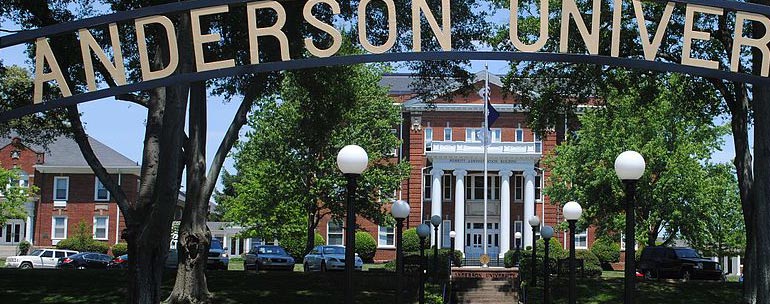
Anderson University offers a Bachelor of Human Services with a concentration in Gerontology. The program uses a flexible online format. The curriculum consists of courses like Perspectives and Physiology of Aging, and Resources and Policies Affecting the Senior Population.
Anderson University is accredited by the Commission on Colleges of the Southern Association of Colleges and Schools.
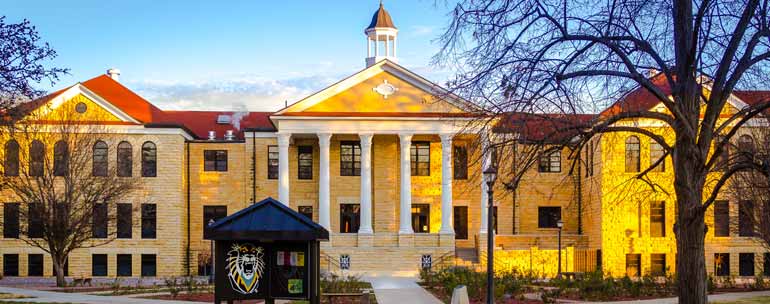
Fort Hays State University offers a BS in Health Studies with a concentration in Gerontology. This is an online degree completion program for those who already have allied health credentials from a technical or community college. The curriculum consists of classes such as Psychology of Aging, Communication and Aging, and Exercise Testing and Prescription for the Elderly.
FHSU is accredited by the Higher Learning Commission.

Geneva College offers a Bachelor of Professional Studies in Aging Services in a flexible and convenient online format. The curriculum consists of courses like Policies and Programs for Aging Populations, Supervision and Professional Development, and The Aging Adult in Social Systems.
Geneva College is accredited by the Commission on Higher Education of the Middle States Association of Colleges and Schools.

Madonna University offers a BS in Gerontology. Students in the program are taught by expert faculty and have opportunities to gain hands-on experience through internships. Coursework can be completed 100% online from anywhere with an internet connection. Students may also earn a Certificate in Dementia Care or a Certificate Care Management.
Madonna University is accredited by the Higher Learning Commission.
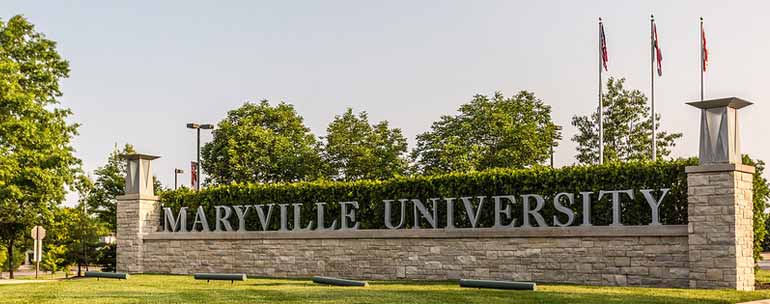
Maryville University offers a Bachelor’s in General Studies with a concentration in Healthcare Studies with a specialization in Gerontology. Coursework can be completed 100% online. Graduates may work in a variety of settings, including hospitals, insurance companies, health departments, and more.
Maryville University is accredited by the Higher Learning Commission.
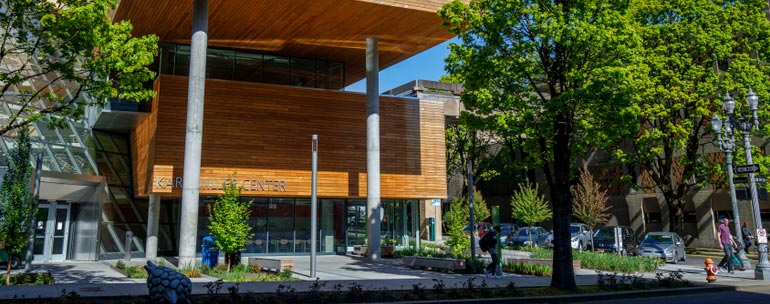
Portland State University offers a BA in Health Studies with a concentration in Aging Services. The program offers individualized mentorship, and its classes are taught by faculty members with research and real-world experience. Accepted students can start any term and take classes online, on campus, or in a combination of both.
Portland State University is accredited by the Northwest Commission on Colleges and Universities.
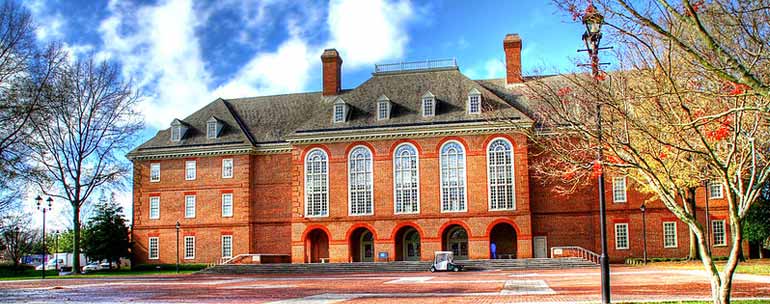
Regent University’s Bachelor of Science in Gerontology program is available exclusively online. Its curriculum is rooted in Christian principles. It consists of courses like Introduction to Gerontology, Contemporary Issues in Aging, Culture and Aging, Psycho-Social Aspects of Aging, Gerontology Policy Analysis, and Biology of Aging. The program also provides the opportunity to complete a practicum.
Regent University is accredited by the Southern Association of Colleges and Schools Commission on Colleges.

Saint Xavier University offers a Bachelor of Science in Gerontology. The program uses online classes that are designed to facilitate interaction through video chats and discussion boards. Students in the program are given opportunities to participate in internships and tailor their coursework to suit their personal and professional goals.
Saint Xavier University is accredited by the Higher Learning Commission.

Southern Nazarene University offers a Bachelor of Science in Family Studies and Gerontology. Each course in the program is 5 weeks long, and there are seven start dates offered every year. Classes can be taken entirely online or on campus once a week. The curriculum consists of courses such as Human Development, Personal and Professional Development, and Family Communication.
SNU is accredited by the Higher Learning Commission.
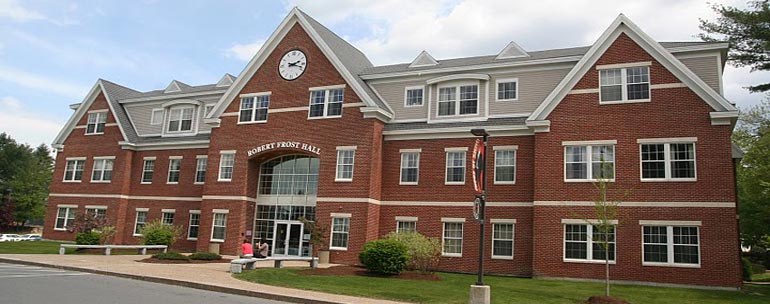
Southern New Hampshire University offers a Bachelor of Arts in Human Services with a concentration in Gerontology. The program emphasizes experiential learning, and students may be able to receive credits for prior learning. The degree can be earned 100% online, and classes have no set meeting times. Internships are encouraged but not required.
Southern New Hampshire University is accredited by the New England Commission of Higher Education, Inc.

The University of Central Florida offers a BS in Senior Living Management. This program features an interdisciplinary curriculum with coursework in management, communications, hospitality, human resources, and more. The degree can be earned completely online. Graduates often pursue employment in nursing homes, assisted living facilities, and similar settings.
The University of Central Florida is accredited by the Southern Association of Colleges and Schools Commission on Colleges.
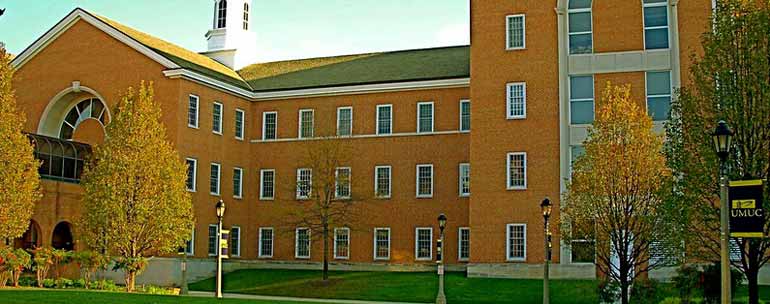
The University of Maryland Global Campus offers an online program for a Bachelor of Science in Gerontology and Aging Services. The program requires an in-person internship, as well as courses such as Contemporary Issues in Aging, Service and /Program Management, Health and Aging, and Psychosocial Aspects of Aging.
UMGC is accredited by the Middle States Commission on Higher Education.
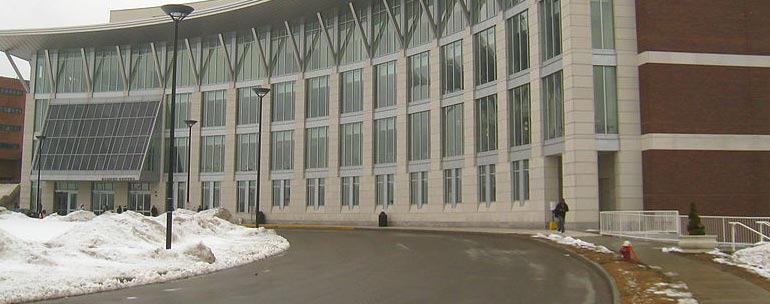
The University of Massachusetts—Boston offers an online program for a Bachelor of Arts in Global Aging and Life Course Studies. Students typically start in the fall and take 4 years to finish. UMB’s online courses include live sessions that are planned with working professionals in mind. Students can enroll either part-time or full-time.
UMass Boston is accredited by the New England Commission of Higher Education.
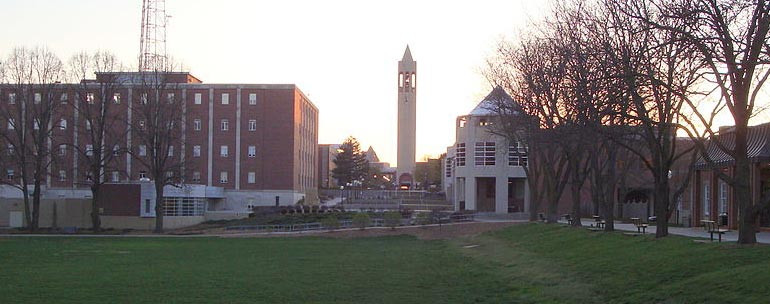
The University of Nebraska—Omaha offers a Bachelor of Science in Gerontology. Students can choose from three concentrations: Administration, Healthy Aging, and Pre-Health. The Administration concentration is available both on campus and online, and the others are available on campus. To graduate, students must complete a 156 hour practicum, for which they can choose their own site.
UNO is accredited by the Higher Learning Commission.
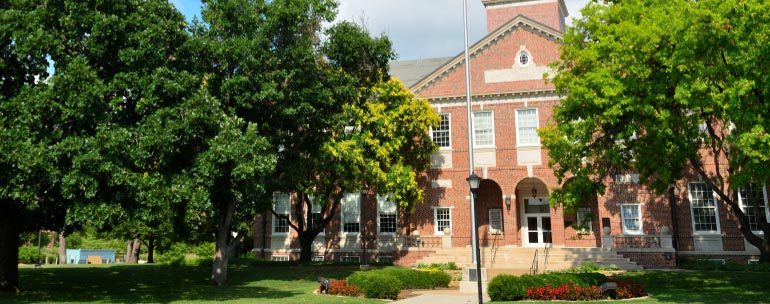
Wichita State University offers both a Bachelor of Arts Field Major in Aging Studies and a Bachelor of General Studies with an emphasis in Aging Studies. Both options are available completely online. Students in both must participate in applied learning and research experiences and internship activities, such as leading exercise classes for older adults.
Wichita State is accredited by the Higher Learning Commission of the North Central Association of Colleges and Schools.
Getting Your Bachelor’s Degree in Gerontology Online

Online gerontology degrees can help you develop essential skills and knowledge that can be applied to a number of careers in gerontology and the general healthcare industry.
This degree path may also help individuals develop compassion as well as skills in communication, research, and problem-solving. A Bachelor of Gerontology online degree can prepare you to enter into the gerontology field upon program completion, but it could also act as a stepping stone toward a graduate degree.
If you’re interested in working with older adults and wish to study gerontology, you can begin your journey today by researching gerontology bachelor degree programs from accredited institutions.

